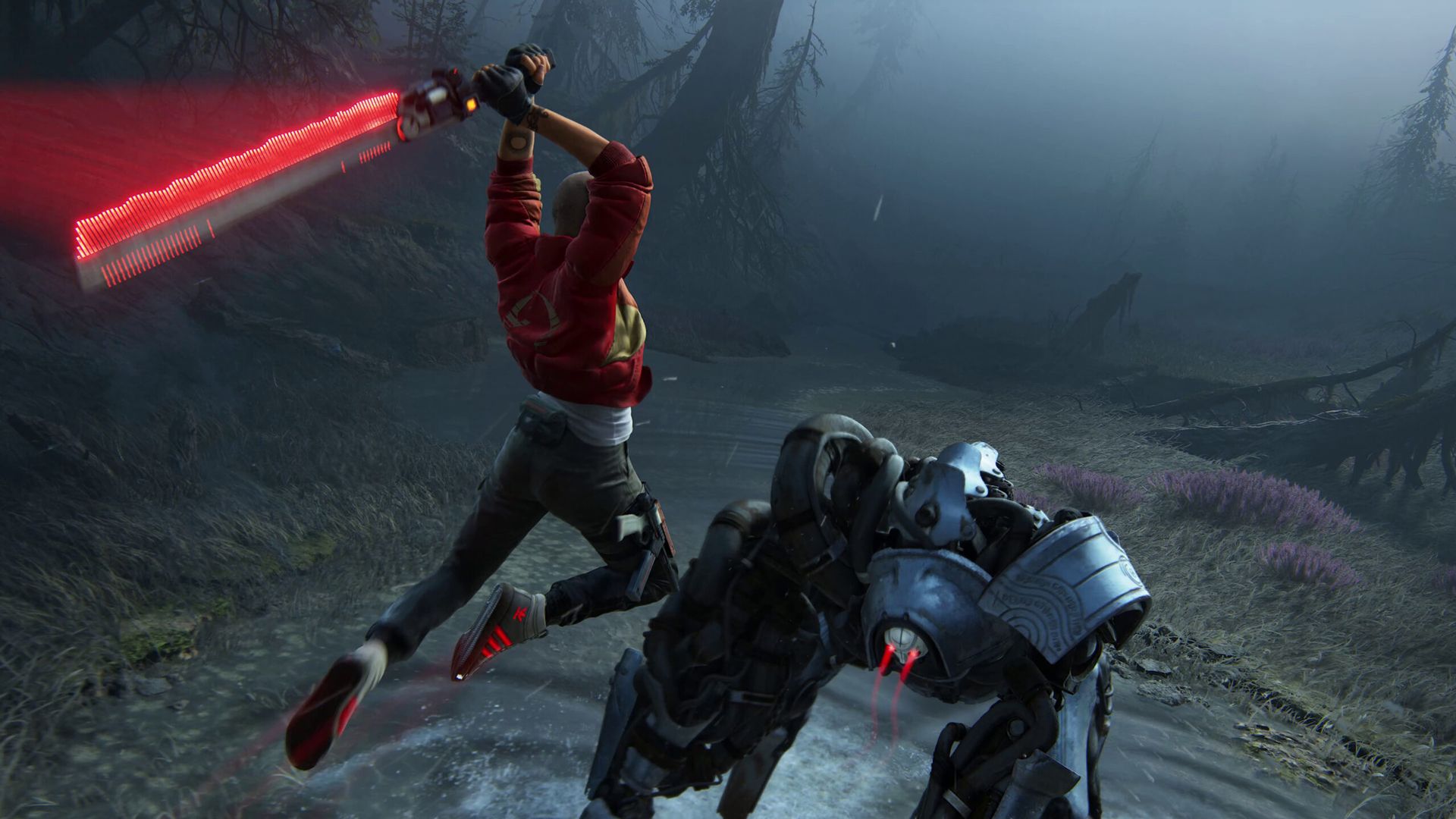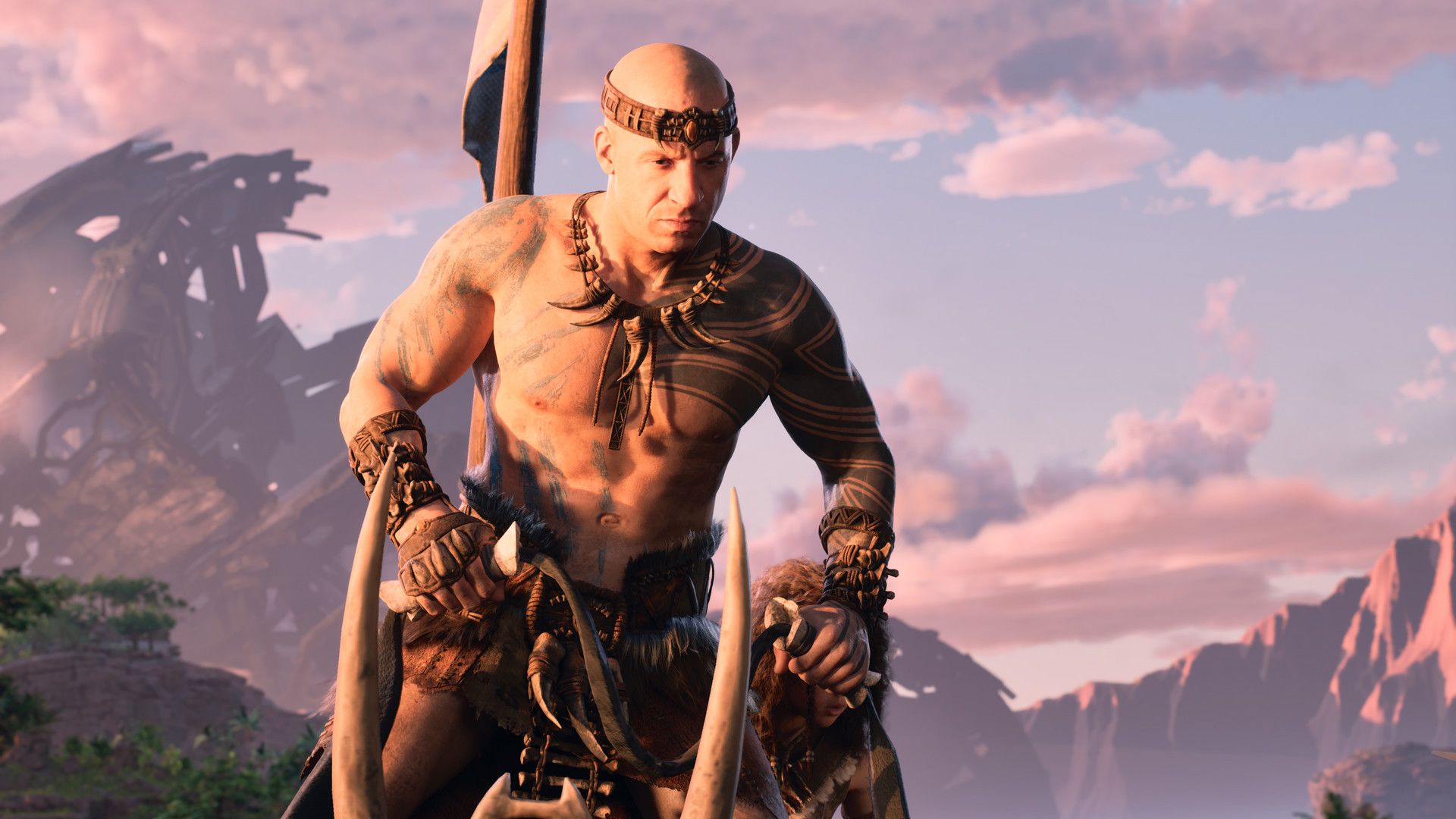I’ve had a couple of unhealthy interviews, however this explicit encounter at E3 2019 made me need to crawl inside my very own shoe and die.
Let’s begin with some context. First off, it’s arduous to fly 11 hours internationally, return in time eight hours, and performance on 4 hours of sleep per night time. It’s powerful to speak to individuals all day and be round all of the loud noises with no escape, even in your resort room that you just share together with your (completely nice, please don’t hearth me) boss.
Despite all this, you get by on the thrill of the factor. It’s E3, man. E3! The Electronics Entertainment Expo – gaming’s Mecca and the possibility to speak to a great deal of fascinating, clever individuals in regards to the cool shit they’re making. It’s extraordinarily good, in the identical approach suplexing your mind right into a skip is nice.
Yakuza creator Toshiro Nagoshi was feeling the identical once I went to interview him on the second day of the present inside Sega’s sales space. I arrived ten minutes early and my interview was ten minutes late – that’s once I began to surprise what was occurring. It seems Nagoshi was asleep in one of many interview rooms and I used to be kindly provided an interview with another person. The downside was, the questions I had ready have been for him particularly. As the sensible PR individual and I strive to determine what to do, a door opens and we are able to clearly see Nagoshi-san rising from unconsciousness by way of the cracks.
“Oh, it looks like he’s awake, we’ll get you set up.” It was at this level once I realised I’d fucked up.
I used to be led right into a small interview room the place Nagoshi was sitting, together with a PR individual and a translator. I might already see that he hated me for current. He had actually simply woken up and right here’s this man bothering him as loud music and annoying noises blare from past the skinny partitions and thru the open ceiling.
“I’m sorry to interview you when you’re so tired,” I joke, laughing on my own as Nagoshi’s eyes roll into his head. “I’m only going to do a quick one anyway, but I wanted to start by talking about your research process. I wondered if he’d consulted with any real Yakuza on his games?” I direct my query to the translator.
“He’s – what sorry?” replies the translator, unable to make out my query above the horrible sounds seeping into the room mixed with my East Midlands accent.
“Consulted with real Yakuza,” I repeat.
“Consulted, oh,” the translator replies earlier than relaying my query to Nagoshi.
A decade passes.
“No, there was no actual consulting work,” comes the reply. “So there was actually already a lot of reference materials sourced from, like there’s a lot of Yakuza-themed movies and books and comics and things like that to draw from.”
At this level, I’m in search of a hook – a superb private anecdote to kick off a narrative about Nagoshi and the sorts of games he makes. I strive one other strategy.
“He said previously in another interview that he drew from his time going around drinking, hearing sad and funny stories from the people he met. I was wondering if he could tell me any of those stories,” I ask.
“He said it in another interview?” the translator replies.
“Yes, he said that he learned some sad and surprising stories,” I make clear.
“From Yakuza?” comes the response.
“No, from going around drinking, just from people in bars and stuff,” I make clear extra.
“Oh, okay…”
I minimize in to ensure the translator understands the angle, “And he incorporated that into the games, he said previously. I was wondering if I could get some examples.”
“So, there’s not one in particular, but he does remember each [inaudible because of the hellish sounds beyond the booth] that he heard from [inaudible] that he talked to, and it’s usually the people that work at these bars that he’s acknowledging that they’ve arrived at this point in their lives because they faced some hardships in their lives growing up, or they went a little bit overboard in their youth and they’re trying to kind of correct their path, sort of, and redeem themselves, and that sort of thing, so that all did really inspire the storyline for this,” the translator tells me.
“And did you draw from any of your own experiences at all?” I observe up in an try to get one thing extra particular.
“So, you know, nothing was put into the game as in, like, a life, episode of life, but definitely like some perspective on things, or like if he had seen something in the newspapers, some kind of incident, he would kind of imagine on his own, like what got up to this thing, or what kind of thing happened, and put those kinds of things into the game as well,” the translator replies.
At this level I realise I’m not getting something uncooked, private, or particular from this line of questions so I change issues up a bit and dig into his design ethos as a substitute.
“A lot of his characters are morally grey, but they often don’t kill. I was wondering where his preference comes from there?” I ask.
“That’s like in battle and stuff, right, they don’t kill?” asks the translator.
“Yes, they knock them out,” I make clear. “They’re usually like bad-but-good guys, you know.”
A century passes.
“So I mean there are characters that die just throughout the storyline obviously, but I feel like it’s kind of a Japanese way of approaching it, and also just a personal preference of my own, I don’t really like to go that far in battle,” Nogoshi says, through the translator. “It’s just kind of my personal style that’s more reflective [another hellish noise blasts over a nearby speaker, drowning out the end of his answer].”
Nagoshi hasn’t checked out me this complete time and I’m fairly positive he’d prefer to hit me with a large cone. Still, the reply is a little more fascinating and he appears extra open to speaking about his strategy to design, so I proceed down that route.
“A lot of your games share the same locations, the same cities in Japan. How do you make them feel fresh through subsequent games?” I ask.
“So the players of today are totally different to players of ten years ago, and so we try to evolve and incorporate more new things into the gameplay and into the setting so that it changes with the times, and evolves so that the players of each new generation and new time will be able to find something that they enjoy in it,” he replies through the translator. “And we do pay close attention to [another noise from the pits of hell seeps in] and the details of games and try to make adjustments so that [bwarp].”
I nod my head and faux I heard what he stated.
“Judgment shares the same world of Yakuza, right?” I ask. “But it’s a different kind of story. I was wondering what drew him to this particular story?”
“Sorry, what?” the translator replies over the bwarps.
“What drew him to this particular kind of story this time?” I repeat.
An eon passes.
“So we were confident that if we took all of the know-how and the skills and the knowledge that we took away from creating the Yakuza series throughout the years we would be able to create something new that would be really good at bringing that experience, so that was kind of the new challenge that we wanted to take on with Judgment,” Nagoshi explains through the translator, his eyes getting extra livid with every query.
As he’s answering that final one I check out my checklist of questions. One of them is about Pierre Taki, a Japanese actor who lent his likeness to one of many characters in Judgment. He was removed from the game following cocaine use allegations. I questioned how Nagoshi felt about that, however I additionally bought the vibe that he would dropkick me within the eye or stroll out of the room if I requested it. Best skip that query about Shenmue three whereas I’m at it.
“Originally the Yakuza games were made for the Japanese market, but now they’re popular in the West. What do you think is behind that? Do you think gamers are just sick of being in America as a setting for video games?” I ask as a substitute.
“So that might definitely be one reason for that, that gamers in the West are bored of certain environments, but also it’s not just Japanese games being accepted in the West, it’s also the same thing is happening in Japan, where they’re really more open to Western experiences,” the translator relays Nagoshi’s reply. “So it’s kind of a trend that the worldwide thing right now, where everybody’s becoming more open to new experiences.”
At this level, the translator will get a wierd, horrified look on their face and I get the sinking feeling that I wasn’t given Nagoshi’s full response. I press on regardless, combating my very own urge to go to mattress.
“How do you feel at the moment about the health of the Japanese game development scene compared to the West? Does he feel like one does anything better than the other side, or vice versa?” I ask, the tip of my query drowned out by a distant bwarp.
“Sorry, the last part?” says the translator.
“Does the West do better at certain things or does Japan do better at certain things, I was wondering?”
“So Western studios are, I really feel like there’s a much bigger budget attached to a game usually and so the scope of the game world is much bigger, and it’s on a larger scale,” comes his reply. “But in comparison to that, Japanese developers are more, really good at looking at the details, and really putting excellent craftsmanship into each and every one of their titles, so they both have their pros.”
I say my thanks and depart, realizing that I seemingly don’t have something useable within the interview. At least we’ve got this text although, eh?
I wish to add that it was a honour to speak to Nagoshi-san, and the PR and translators did a beautiful job. This article is supposed to focus on the weirdness of E3 if you’re there in individual and everyone seems to be strolling round like ghosts who died once more after they changed into ghosts, their howls of ache drowned out in bwarps. I can nonetheless hear them now. The bwarps, I imply.
Source







